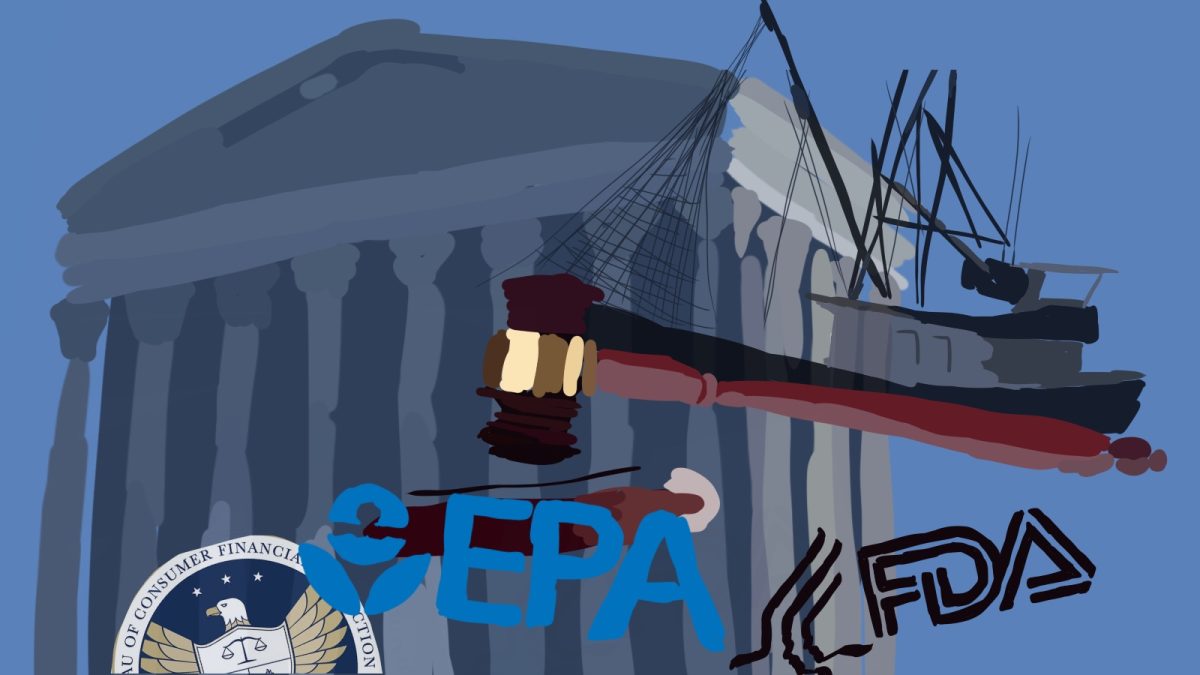On Friday, June 28, Loper Bright Enterprises v. Raimondo overruled a decades-long legal principle of the Chevron deference, which ended the authority for federal agencies in courts to interpret laws in their field of expertise where Congress did not clearly specify regulatory law. Essentially, courts will no longer work with federal agencies to decide how laws should be clarified in very specific situations.
This was overturned when Loper Bright Enterprises, a fishing company composed of New Jersey fishermen, wanted to avoid federal rules requiring them to pay $700 per day for observers that record the amount of fish fishermen catch in order to prevent overfishing. They then sued the National Marine Fisheries Service, arguing that the federal agency did not have the authority to force them to pay for monitors, thus challenging the Chevron deference.
A deference is a legal method that allows a court to give away their judgment to another group or organization by “deferring” authority. The Chevron deference was defined in the 1984 Supreme Court case Chevron v. Natural Resources Defense Council, in which the NRDC environmental group challenged new regulations issued by the Environmental Protection Agency–regulations that allowed the oil company Chevron to create new pollution sources–even though the regulations violated the Clean Air Act.
The Supreme Court ruled to designate the interpretation of what is considered a source of pollution to the EPA in the case. This decision allowed federal government agencies, such as the EPA, to implement their own regulations in the field they are specialized in, rather than judges.
Chevron became one of the most popular cases cited in circuit courts, which used the Chevron deference in 77% of decisions. Supporters of the landmark case cite that Chevron runs on the basic idea of the separation of powers that founded the American government. Instead of nine unelected justices conducting the entirety of lawmaking, leaders of federal agencies–who are employed by presidents voted in by Americans–have a role in creating regulations.
Laws are often made vague by legislators. For example, because of the FDA’s power pre-Chevron, many laws on drug approvals included intentionally vague language in order to allow federal agencies to have a say in how the laws were specified and interpreted. As the Chevron deference no longer exists, the power of federal agencies to regulate laws has been restricted due to the courts now being required to interpret laws without their input.
The lawyers who represented the fishermen under the law firm “Cause of Action,” are shown to constitute the conservative political advocacy group “Americans for Prosperity,” funded by Charles Koch. Koch is the CEO of Koch Industries, which is the second-largest privately-held company in the United States.
Cause of Action’s board of directors included a lawyer who has represented Koch Industries in multiple cases. These cases included lawsuits on the handling and regulation of the byproducts of oil refining and the company’s fraudulent climate change practices.
Similarly, Republican lawyers in conservative legal organizations, like the Federalist Society, have pushed for deregulation and the overturning of Chevron. The success of Loper Bright was possible due to conservative efforts and support.
The overturning of Chevron came after the Supreme Court’s six Republican justices used the “major questions doctrine,” allowing the Supreme Court to veto some federal agency actions.
“It has been the initiative of some Republican politicians and presidents to roll back regulations because they see them as being contrary to economic growth,” Advanced Placement World History teacher Devin Schaller said. “Regulations cost money, they slow down production, they slow down progress. The intent of slowing things down or regulation is to make sure that people are being given a product that is safe, that the behavior of corporations and companies is regulated to a degree of where it’s not going to have a negative impact on our environment and therefore our health.”
Supporters of the deference point out that it is impossible for judges to be experts on the thousands of different questions that are addressed by federal agencies. In the case of the U.S. Food and Drug Administration, their officials are experts in drugs. Now, because of the overturning of the deference, policy questions regarding drugs will be deferred to Supreme Court justices who are only specialized in law.
“How can we determine that drugs are safe?” administrative law expert Lisa Heinzerling said. “…Those kinds of questions involve technical expertise, often they involve very many different scientific disciplines, and therefore a lot dealing with them itself is going to trade in kind of specialized terms and specialized concept.”
In lower courts, judges have less experience addressing drug regulations. For example, under the Chevron doctrine, courts have upheld FDA interpretations on what is or is not a dietary supplement or drug, questions a judge would not be fit to answer.
“There is going to be a different kind of regulation–there is still going to be regulation by the judges–but again those judges are not those specialized people in the field,” junior Madison Hamilton said. “It’s going to be a different kind of judgment on something that they don’t know is 100% safe because they are not educated for five plus years [on the subject].”
Supporters of Loper Bright claim that the Chevron deference was abused by federal agencies for a progressive agenda, which escalated under the Obama administration. Agencies overstep with their power using Chevron, as outlined in the 1803 decision in the case of Marbury v. Madison, which states that it is the duty of the courts to say what the law is.
“By forcing courts to instead pretend that ambiguities are necessarily delegations, Chevron does not prevent judges from making policy,” Chief Justice John Roberts said. “It prevents them from judging.”
Chevron is considered to be more democratic, as agency leaders are held accountable to a president elected by the American people, rather than to unelected justices who serve for life. However, those in opposition to the deference consider it to be an overstep of the executive branch.
The overruling of the deference has affected the U.S. legislative system. For example, the decision disallows the U.S. Department of Agriculture to quickly address food risks as it has previously done. For instance, in 1994 the USDA used the deference’s provisions to declare E. coli an illegal adulterant in beef after the 1993 E. coli outbreak.
Without the Chevron deference, increased legal challenges and prolonged regulatory processes delay these important measures, causing lowered consumer safety. Eliminating the Chevron doctrine will slow the efforts to address preventable health risks such as salmonella in meat, lead in baby food, Cronobacter in infant formula and “forever chemicals” in drinking water. However, similar to the fishermen in Loper Bright, agricultural producers welcome reduced regulations because it often results in higher profits.
“Cattle producers have experienced numerous instances of federal agencies enacting overreaching regulations on our farms and ranches, exceeding their authority granted by Congress,” the National Cattlemen’s Beef Association President Mark Eisele said. “I am glad the Supreme Court is reining in these federal agencies and putting power back in the hands of those elected to represent us in Washington.”
The Chevron deference also allowed the FDA’s labeling requirements to adapt and include allergen labeling, changes which protected consumers. This would have likely not happened without the deference.
“If you have court cases in civil court or criminal court you have experts come and testify on the behalf of the circumstances to give their expert opinion to help the court make their decisions,” Schaller said. “Agencies are specifically created to regulate and if they are not referred to for their expert opinions that the supreme court is more likely to take a hands-off approach to regulation, that they are going to be less inclined to regulate…The whole aim of all those agencies is all to make sure that businesses and corporations are not exploiting the American people…We are going to see less regulation because that’s what existed prior to the Chevron Deference.”
The court’s decision would make it more difficult to create regulations that protect consumers from preventable injury or death due to products. This could include everything from electric bikes, phthalates in children’s toys, baby goods, bike helmets and vehicle safety standards, as all of these things rely on agencies’ subject matter experts in complex fields.
Supporters of Chevron note that the overturning could possibly worsen the ability of regulators like the Securities and Exchange Commission to protect people from scams, hidden fees, surprise medical bills, discriminatory lending and dangerous banking practices, as well as the ability to promote market integrity and fairness. New financial risks are developing that need to be addressed by the SEC like the rise of artificial intelligence–such as algorithmic decision-making in lending–which requires expert knowledge for implementing regulations of existing banking laws to prevent discrimination.
The ruling could also affect jobs leading to more scrutiny of regulations with courts limiting the power of the Department of Labor’s interpretations of labor protections like the Fair Labor Standards Act and Occupational Safety and Health Administration regulations.
Environmental regulation was the main topic of the 1984 Chevron decision and continued to be upheld by the Chevron deference until its demise. The court’s decision will allow for the challenging of EPA rules like the new emissions standards for cars and light trucks, which aim to lower pollution that causes climate change and health risks.
“If we have a lower amount of people who are now regulating compared to specialized agencies, there would be a delay [in regulation], which I actually think would be harmful and really slow,” Hamilton said.
The American Academy of Pediatrics, the American Cancer Society, the American Heart Association and the American Lung Association wrote that the overturning will cause disruption to the healthcare system and the administration of Medicare, Medicaid and the Children’s Health Insurance Program.
In terms of healthcare, studies confirm the mifepristone drug used for abortions is safer than Tylenol. Since the Chevron deference does not exist, judges can decide the FDA was wrong to approve the drug and deny access to abortion.
“I think whoever specializes in the field the most should be making those decisions, and I think we find those more in the FDA rather than a judge, even if they are well educated, there is some difference,” Hamilton said.
Florida has also previously lowered administrative oversight for companies similar to the overturning of Chevron. In 2018, an amendment was proposed by the Florida Constitution Revision Commission, consisting mainly of Republican legislative leaders, a majority of whom were appointed by former Republican Gov. Rick Scott. The amendment was approved, prohibiting all Florida state court justices, judges and administrative law judges from deferring to administrative agencies in the interpretation of the statutes and rules they are charged to administer.
It was originally thought that little regulation would be overturned or changed as the Loper Bright case declares that, “we do not call into question prior cases that relied on the Chevron framework.” However, the Supreme Court case decision on July 1 in Corner Post v. Board of Governors of the Federal Reserve ruled in favor of a truck stop that challenged a federal regulation on debit card swipe fees. Federal law now sets a six year limitation to challenge regulations. Decades-old regulations are now up for grabs to be challenged.
Categories:
The Loper Bright case originated from a group of fisherman not wanting to pay for fishing observers. The case has now ended the Chevron deference, which allowed federal agencies to interpret laws.
End of Chevron Deference lowers the authority of federal agencies
1
About the Contributor

Natalia Dzielnicka, Reporter
Natalia Dzielnicka is a sophomore at Marjory Stoneman Douglas High School. She is a second-year reporter. She enjoys reading books, painting watercolor art and helping out in Marjory’s Garden.
Tags:
Donate to Eagle Eye News
$705
$1200
Contributed
Our Goal
Your donation will support the student journalists of Marjory Stoneman Douglas High School. Your contribution will allow us to purchase equipment and cover our annual website hosting costs.
Navigate Left
-
 POLITICS & ACTIVISMNew ordinances make Broward homeless population unable to sleep outside
POLITICS & ACTIVISMNew ordinances make Broward homeless population unable to sleep outside -
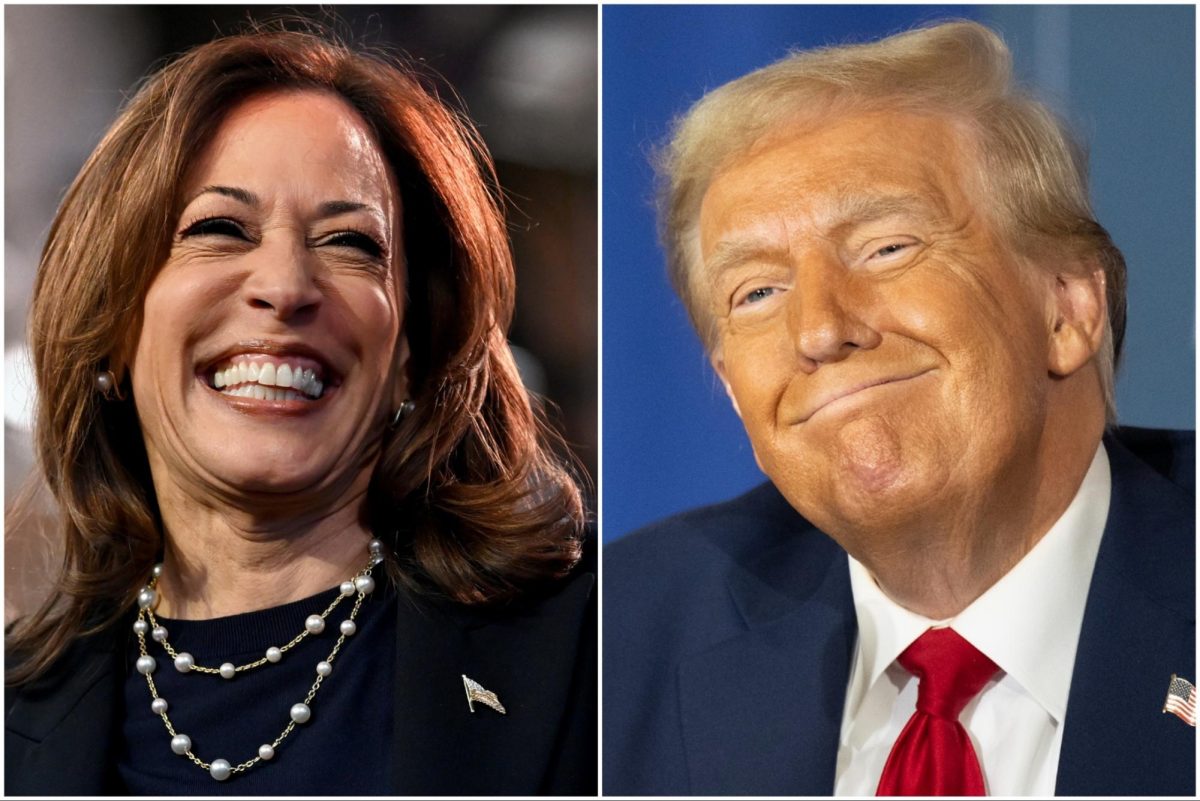 POLITICS & ACTIVISM[Live Coverage] Americans cast their vote in critical races around the U.S.
POLITICS & ACTIVISM[Live Coverage] Americans cast their vote in critical races around the U.S. -
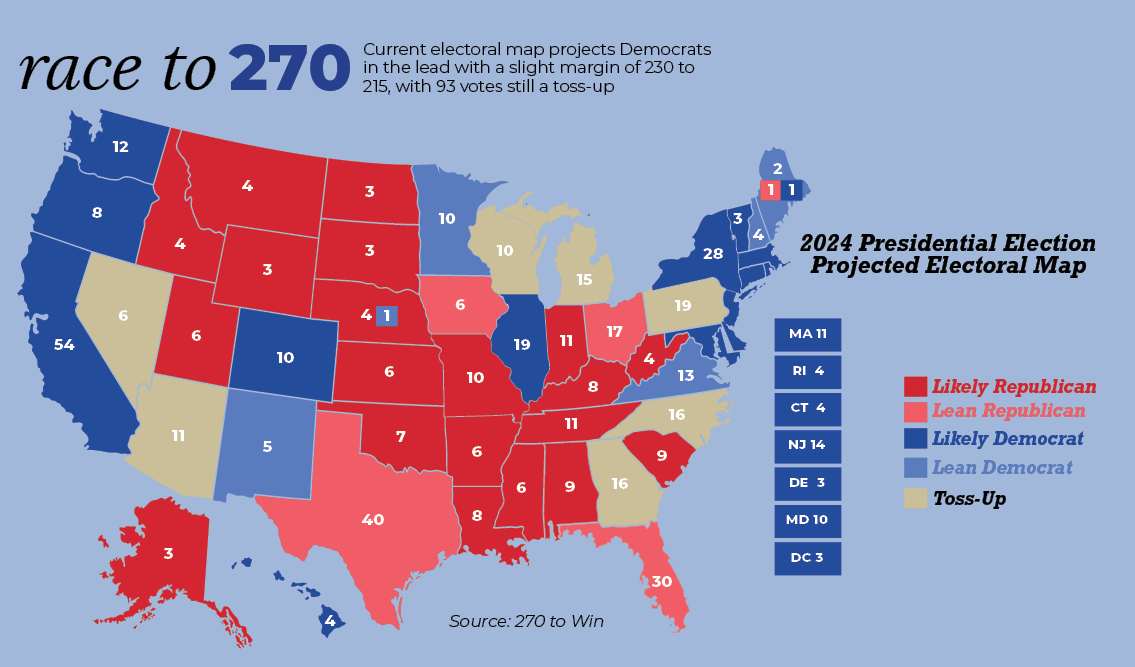 POLITICS & ACTIVISMPresidential candidates Harris and Trump campaign with different policy plans
POLITICS & ACTIVISMPresidential candidates Harris and Trump campaign with different policy plans -
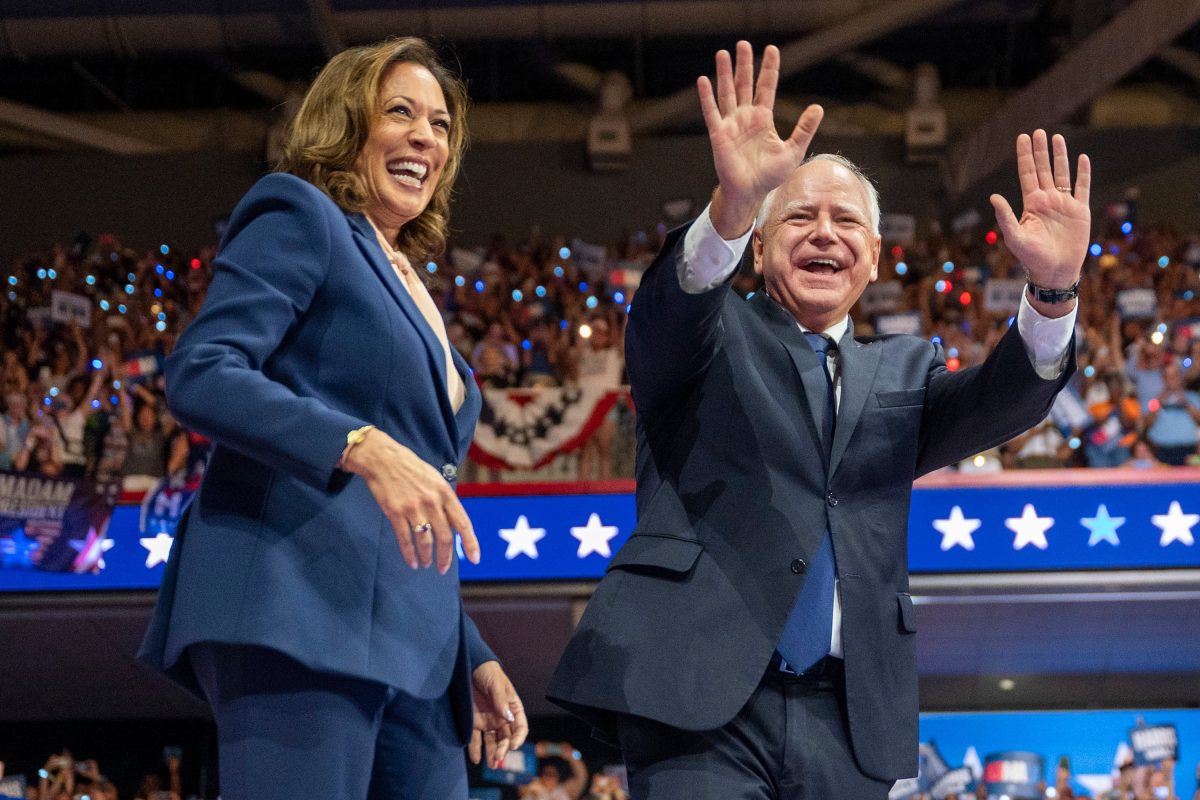 POLITICS & ACTIVISMMinnesota Gov. Tim Walz joins Kamala Harris as vice president nominee in 2024 election race
POLITICS & ACTIVISMMinnesota Gov. Tim Walz joins Kamala Harris as vice president nominee in 2024 election race -
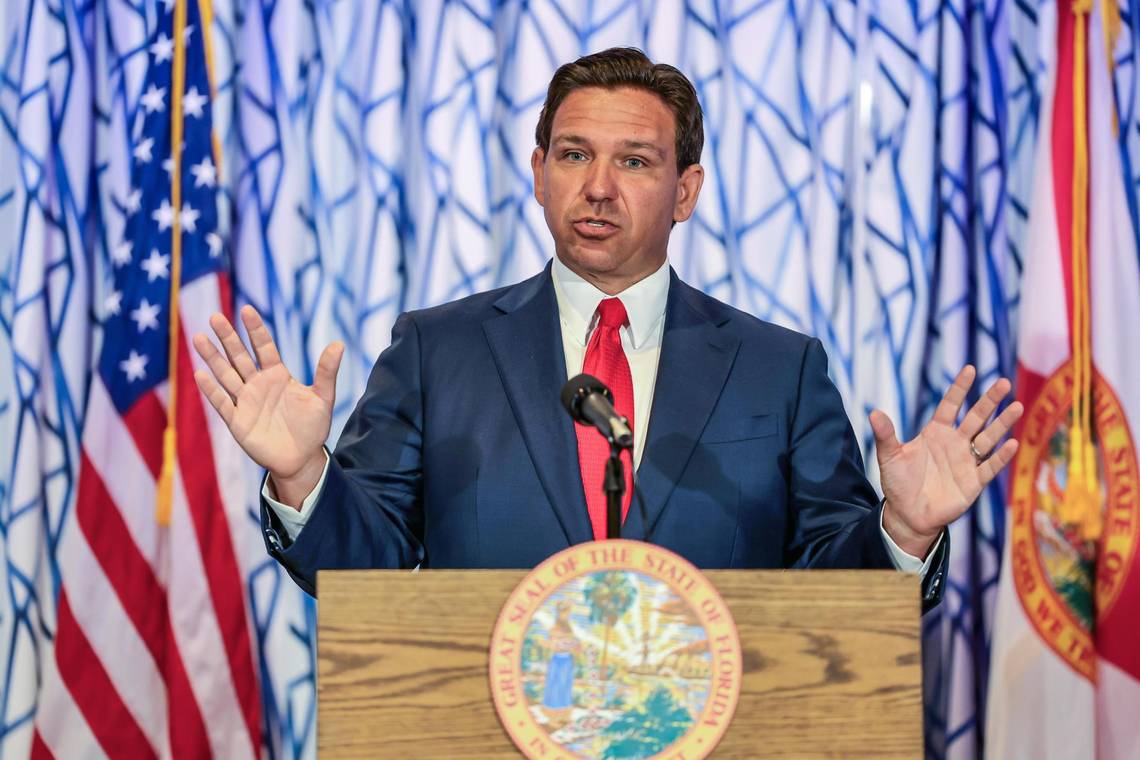 POLITICS & ACTIVISMDesantis signs law targeting internet use for minors
POLITICS & ACTIVISMDesantis signs law targeting internet use for minors -
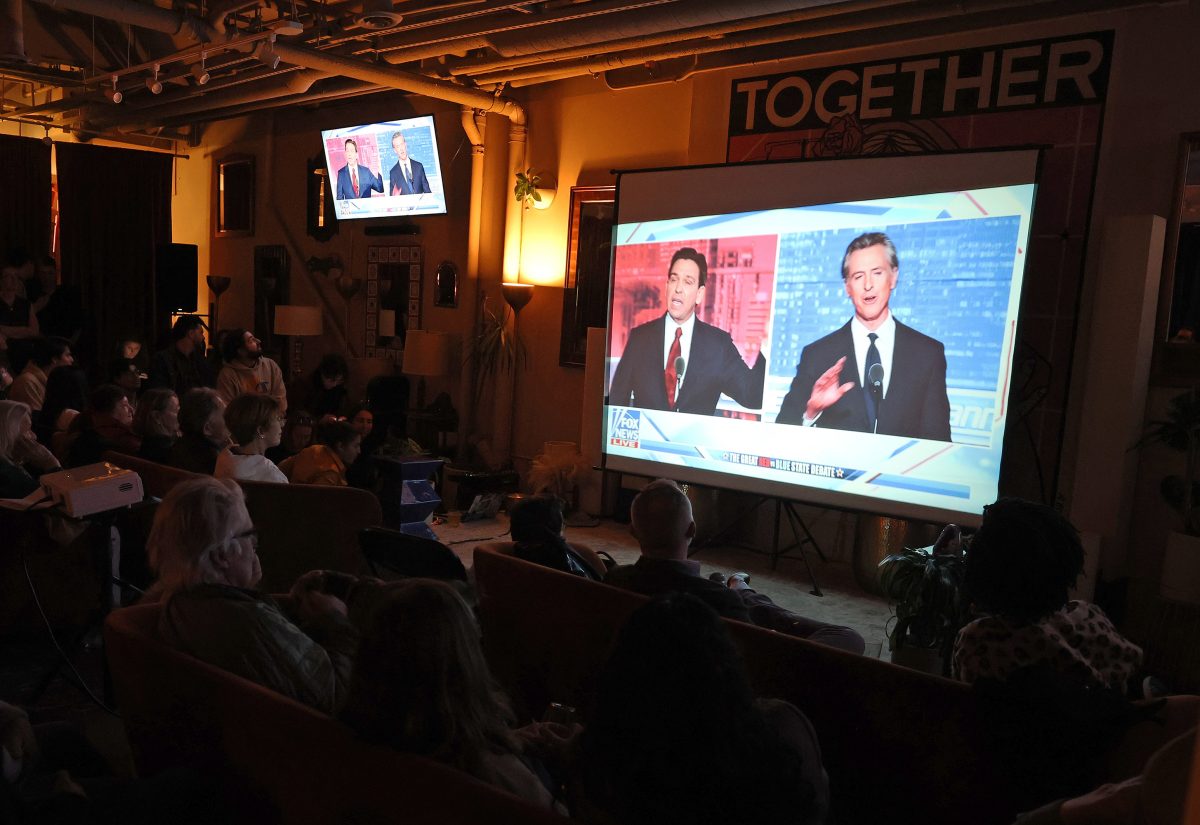 POLITICS & ACTIVISMGov. Newsom and Gov. DeSantis clash in prime-time debate discussing the current state of Florida and California
POLITICS & ACTIVISMGov. Newsom and Gov. DeSantis clash in prime-time debate discussing the current state of Florida and California -
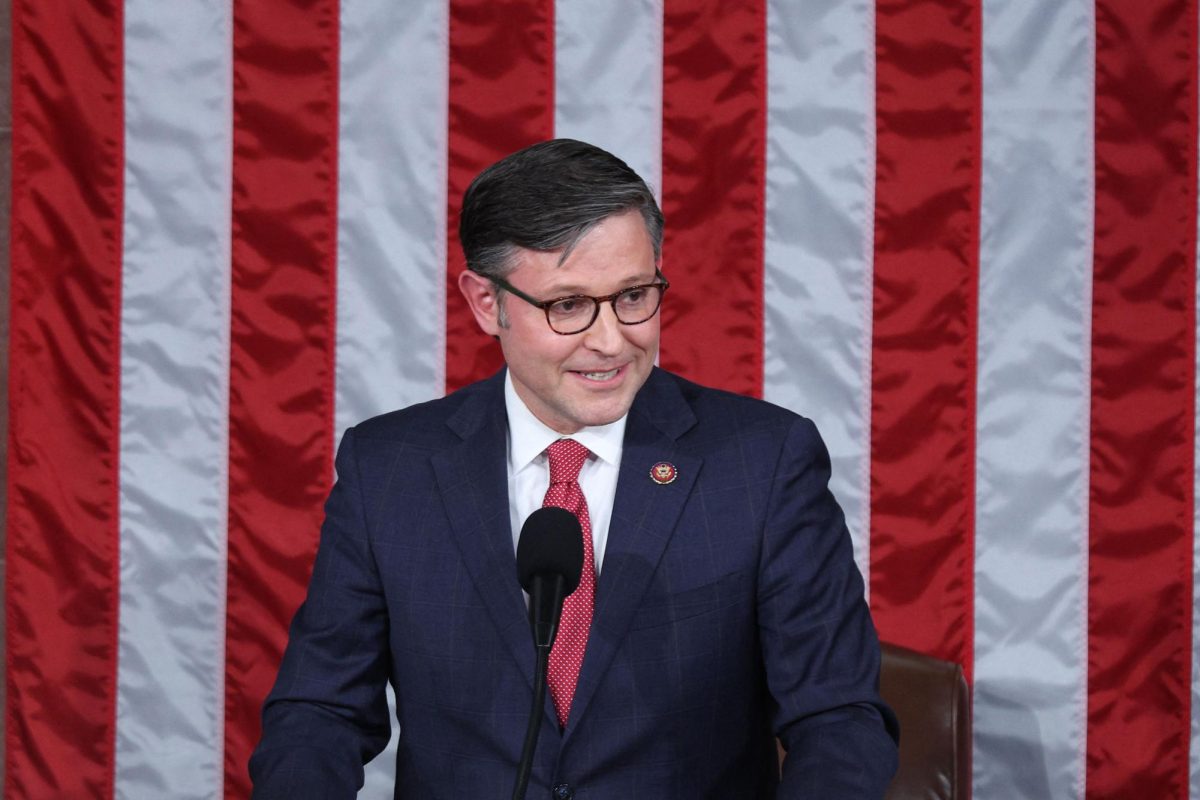 POLITICS & ACTIVISMHouse elects Mike Johnson as new speaker
POLITICS & ACTIVISMHouse elects Mike Johnson as new speaker -
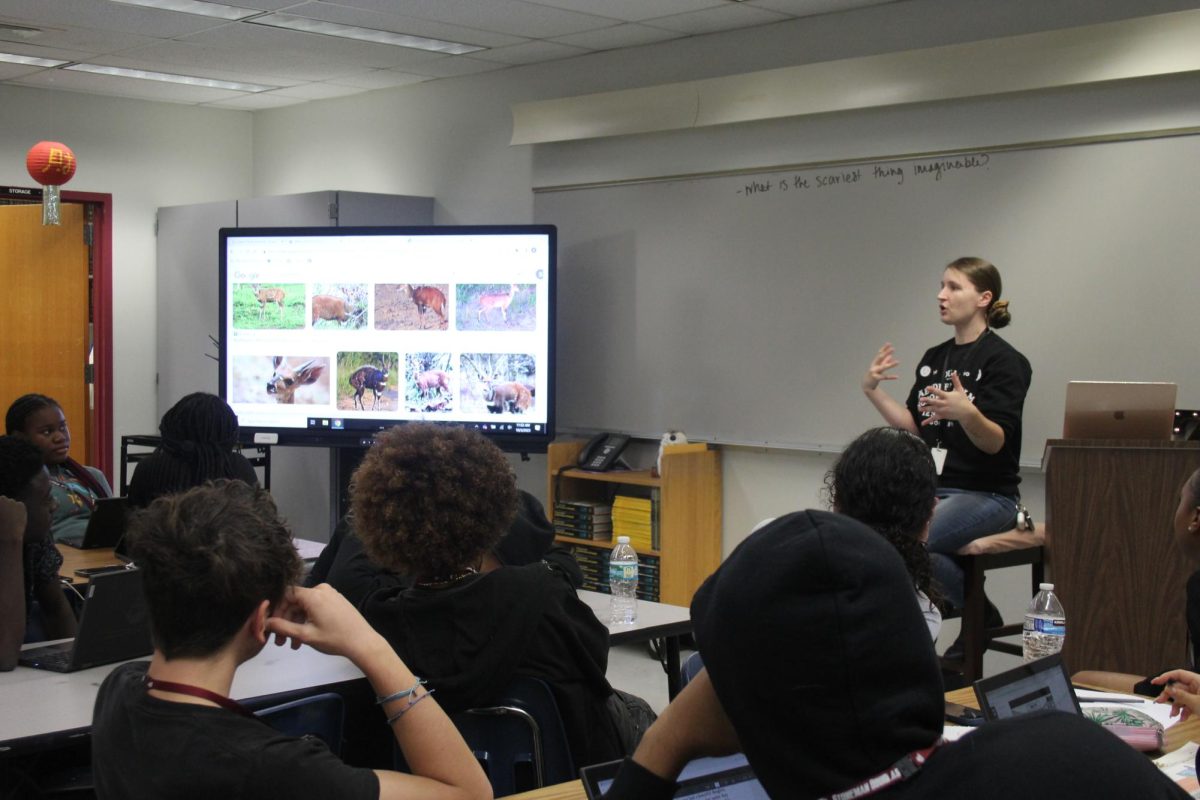 POLITICS & ACTIVISMNew African American history standards and banned AP African History Studies course create controversy
POLITICS & ACTIVISMNew African American history standards and banned AP African History Studies course create controversy -
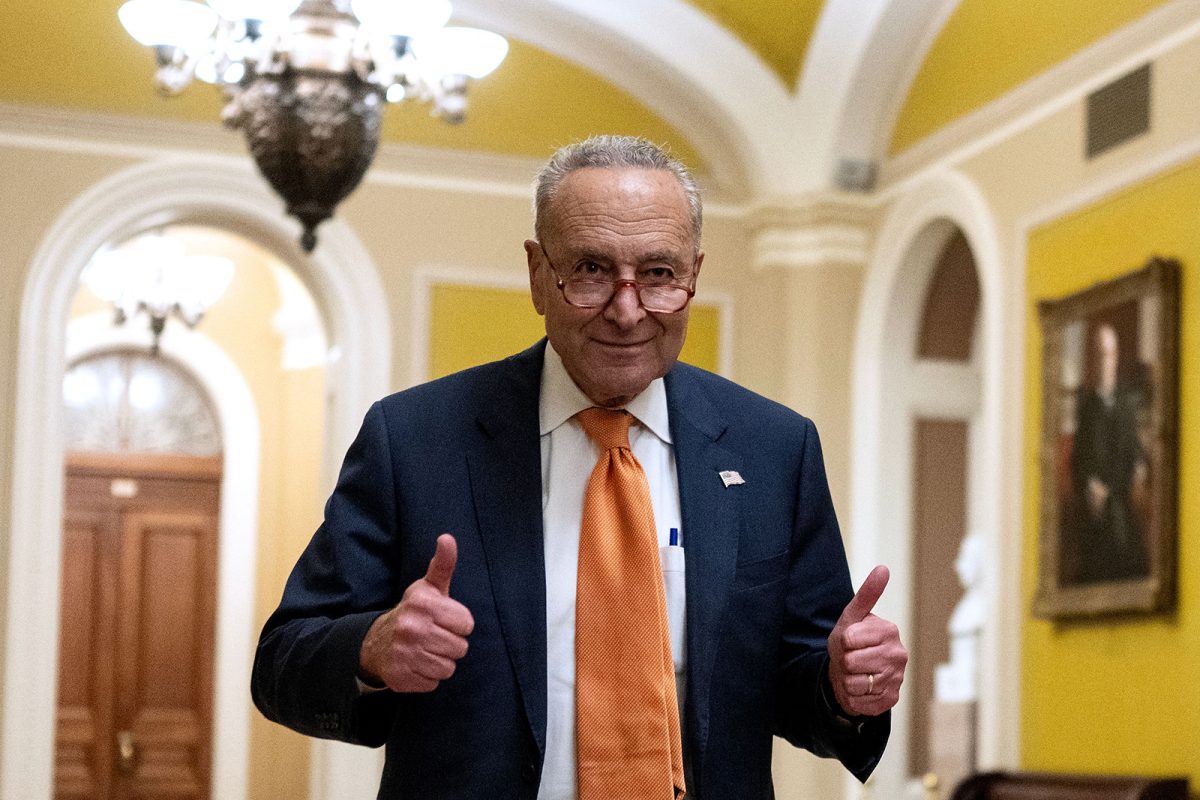 POLITICS & ACTIVISMU.S. narrowly avoids government shutdown through last-minute funding bill
POLITICS & ACTIVISMU.S. narrowly avoids government shutdown through last-minute funding bill -
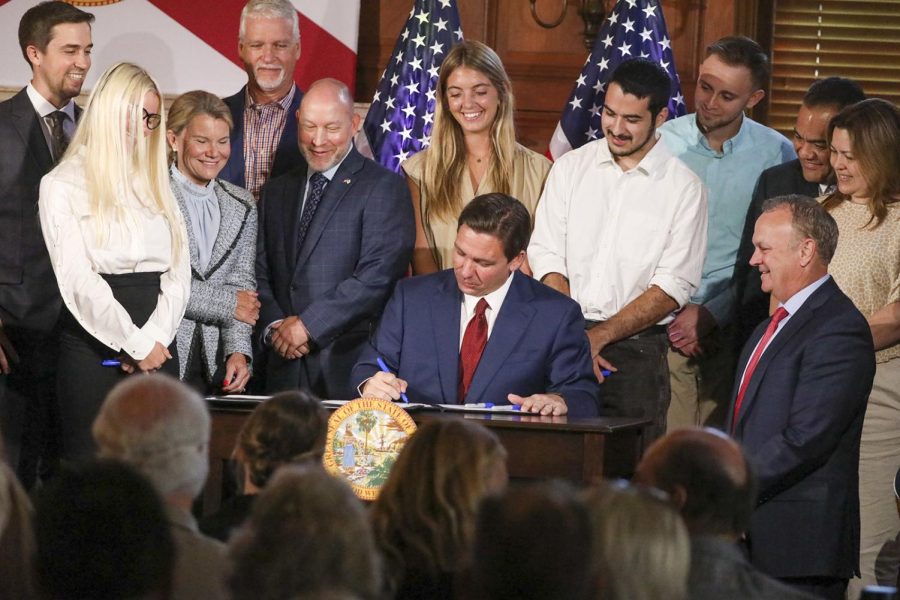 POLITICS & ACTIVISMFlorida passes over 30 bills in the 2023 legislative session affecting education
POLITICS & ACTIVISMFlorida passes over 30 bills in the 2023 legislative session affecting education
Navigate Right

